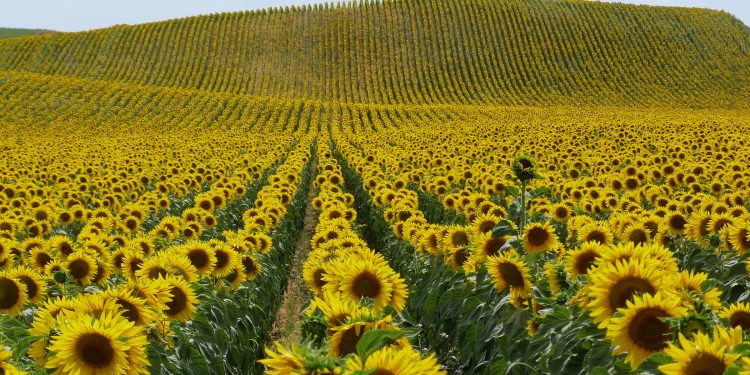#Russia #agriculture #exportduties #sunflowerseeds #sunfloweroil #rapeseed #foodsecurity #domesticmarket #agriculturalsector #internationaltrade
Russia has announced the extension of export duties on sunflower seeds, floating duties on sunflower oil, and restrictions on rapeseed exports. The measures, which were set to expire on August 31, aim to safeguard the country’s internal market. The decision comes from the subcommittee on customs and tariff regulation, a protective measure within the economic development and integration commission.
In an effort to shield its domestic market, Russia has taken steps to regulate the export of oilseeds and their processed products. These measures, originally implemented to address market conditions and economic considerations, will now be extended beyond their initial expiry date of August 31.
Export Duties on Sunflower Seeds and Rapeseed Ban: The export duty on sunflower seeds will remain in effect at 50% but not less than $320 per ton until August 31, 2024. Additionally, the ban on rapeseed exports will continue until February 29, 2024.
Floating Duties on Sunflower Oil and Sunflower Meal: The extension will also apply to floating duties on the export of sunflower oil and sunflower meal. Sunflower meal, used as animal feed, will see a revision in its base export price. The recalculated price will be increased by 2,000 rubles per ton, compared to the previous value of 6,577.7 rubles per ton as of March 1.
The decision to maintain these measures reflects the Russian government’s commitment to supporting its agricultural sector and ensuring a stable supply of vital commodities for its citizens.
Impact on International Trade: The extension of export duties and restrictions will likely have implications on international trade dynamics. It could reduce the supply of sunflower seeds and sunflower oil in the global market, potentially affecting prices and trade relationships with other countries.
Protection of Domestic Market: By regulating the export of sunflower seeds and its products, Russia aims to ensure a sufficient supply within its borders. This move can protect local producers from international competition and maintain stability in the domestic market.
Effects on Food and Feed Industries: The restrictions on sunflower oil and sunflower meal exports may impact the food and animal feed industries in importing countries. Businesses reliant on these products may need to find alternative sources or pay higher prices, potentially affecting food and livestock prices.
Agricultural Sector Stability: The extension of export duties and bans can provide stability to Russia’s agricultural sector by offering predictable conditions for producers and businesses involved in sunflower cultivation and processing.
Government Revenue: The export duties on sunflower seeds and oil can also contribute to government revenue, generating funds that can be reinvested in the country’s agricultural development and other sectors.
Russia’s decision to extend export duties on sunflower seeds, sunflower oil, and sunflower meal, along with the ban on rapeseed exports, reflects its commitment to safeguarding the domestic market and supporting the agricultural sector. While it may have consequences on international trade and certain industries, the move aims to provide stability and protection to its internal market.































